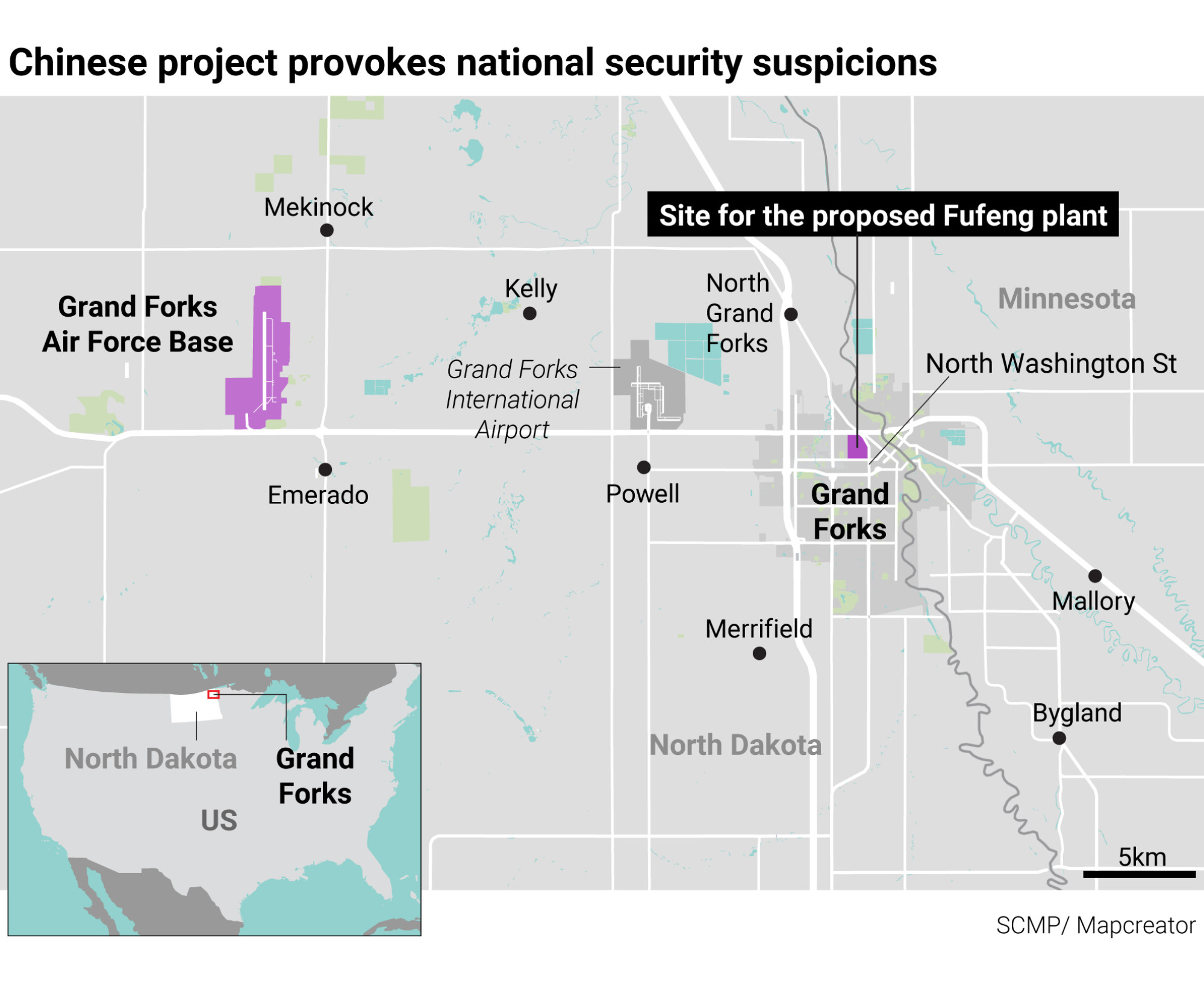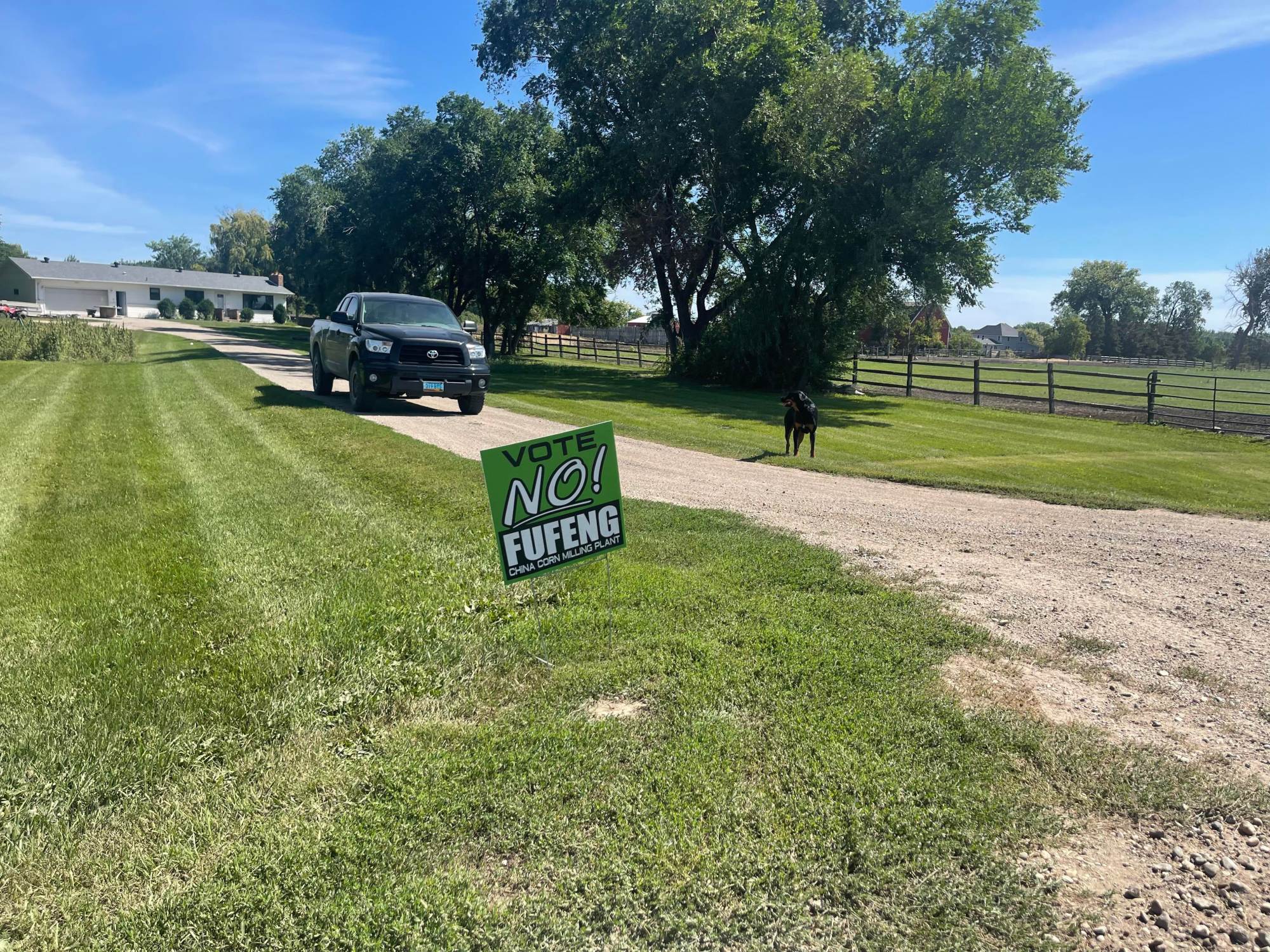
Work on Chinese milling project in North Dakota halted over US national security review
- Fufeng USA asked to supplement ‘insufficient’ information it provided so that foreign investment committee can better assess risk level
- Construction pause a victory for opponents of project whose US$700 million facility sits near an American military base
Brandon Bochenski, mayor of Grand Forks, announced on Thursday that construction of both a raw water supply system and waste-water pump system for Fufeng USA, a subsidiary of Chinese agribusiness giant Fufeng, would come to a halt while work involving joint infrastructure in the city would continue.
Fufeng USA said in a statement on Friday that it remained “open and cooperative” and was looking forward to “a successful completion of the CFIUS process and will work diligently to make that happen”.
The additional submission and review process will run between about 45 to 90 days, with information to be provided by multiple parties including Fufeng USA and the former property owners of the land where the project is located.
City Administrator Todd Feland said the committee was “attempting to determine if the purchase of land in Grand Forks by Fufeng constitutes the purchase of a US business”.
If Fufeng is deemed to have bought a US business, then CFIUS would conclude that it has “authority to review the substance of the transaction and address any national security issues” arising from it, Feland said
Grand Forks city officials in February approved what they described as a US$700 million “development agreement” with Fufeng USA to build a 370-acre (150-hectare) wet corn mill plant. They say the plant will generate jobs, ramp up tax revenues and upgrade infrastructure in the city of around 58,000 residents.

But some residents have expressed wariness over the project’s ties to China. They point out that the proposed facility’s site is about 12 miles from Grand Forks Air Force Base, which houses operations that have been called critical to top US intelligence, surveillance and reconnaissance capabilities.
Despite that setback, Ben Grzadzielewski, a petitioner in the case, voiced optimism following the announcement of the paused construction.
“It’s taken a long time and a huge effort from the citizens, but it looks like our voices have been heard,” said Grzadzielewski.
However, Jodi Carlson, another Grand Forks resident, said the court’s decision hardly counted as a “victory”.
“We have been absolutely betrayed by the people we elected to represent us,” she said, referring to city officials.

But the anti-Fufeng campaign has found advocates in Washington. North Dakota’s two US senators – John Hoeven and Kevin Cramer, both Republicans – have called on local and state leaders to “try to find some other company to work with on the agribusiness project”.
Amid the backlash and even after the recent request from CFIUS, Grand Forks’ mayor was hopeful.
“We see this as a positive sign that the utmost due diligence will be completed on the proposed project,” Bochenski said.

